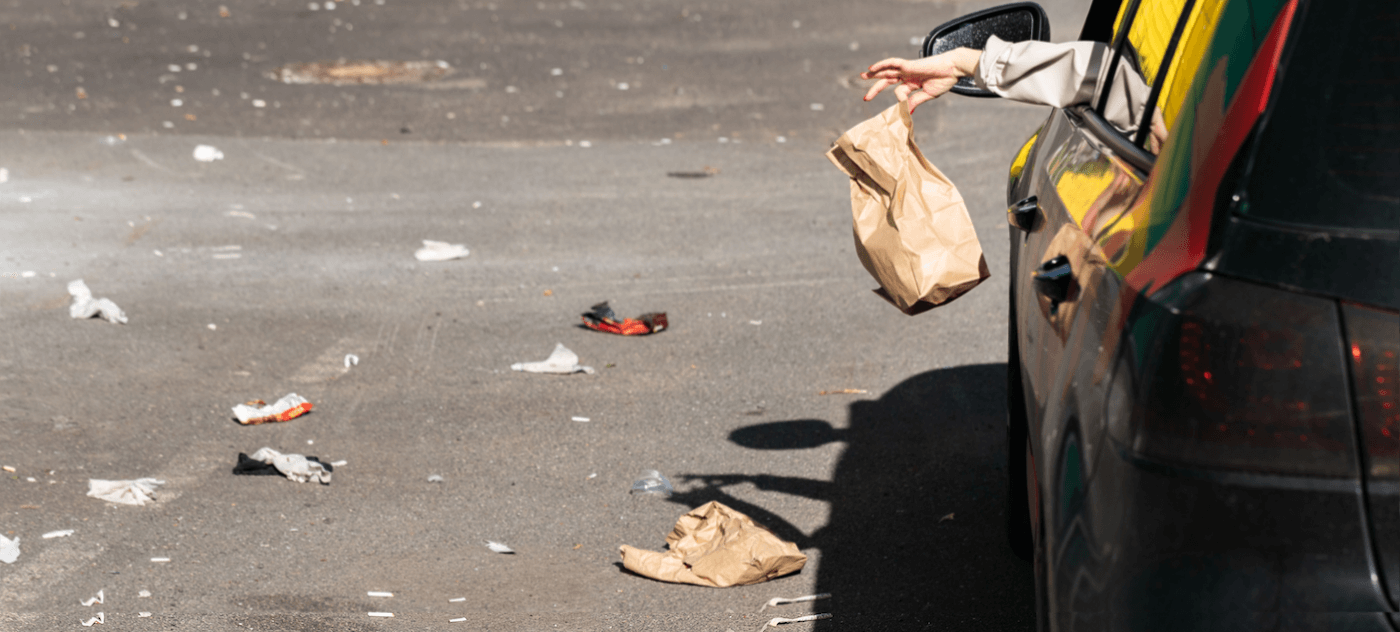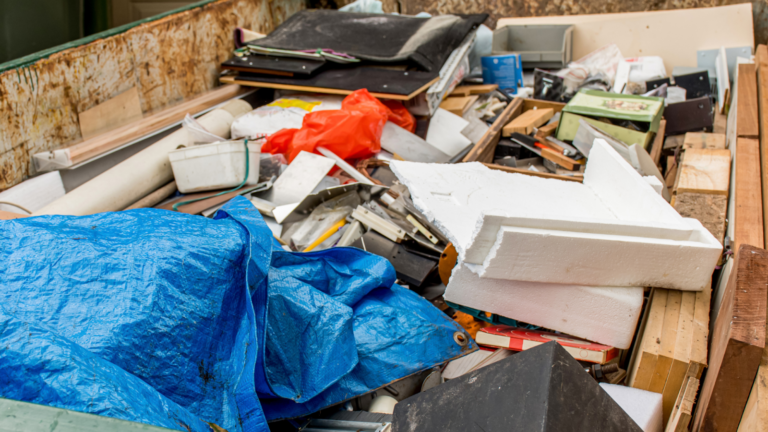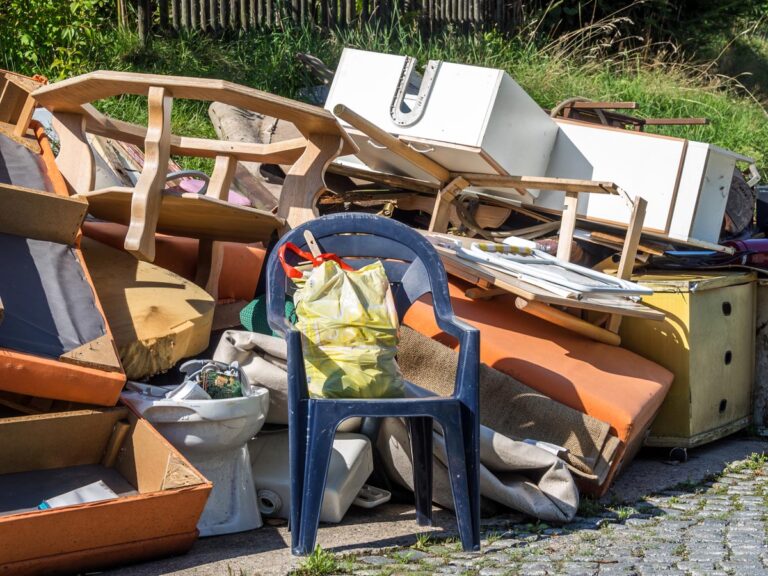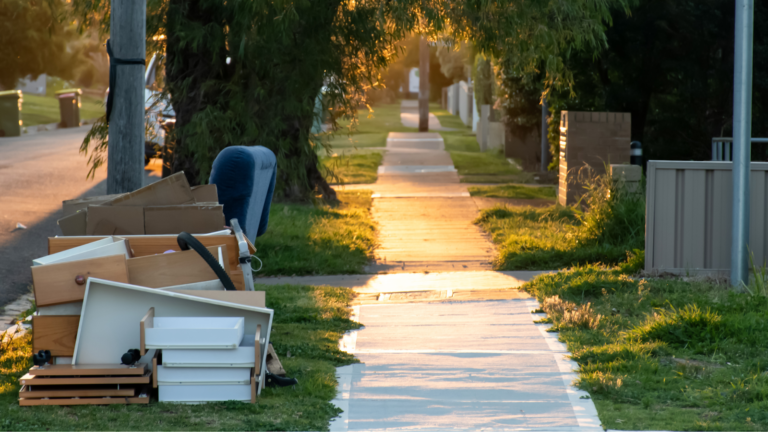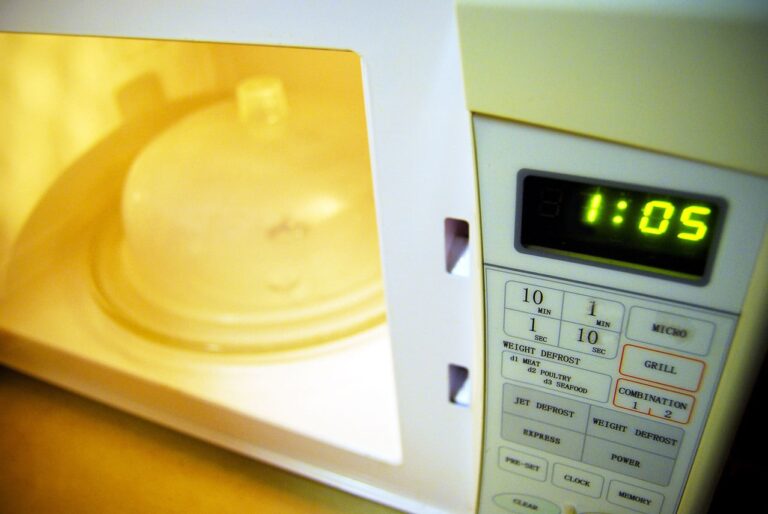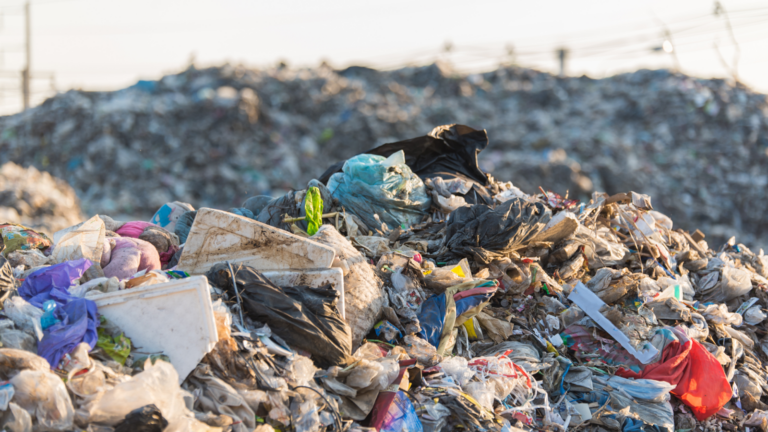Roadside littering is avoidable. However, some people seem to be unable to refrain from engaging in such irresponsible behaviour. This nonchalant attitude imposes a significant burden not only on local municipalities but also on the environment.
Cigarette butts, plastic bottles, and caps are just a few of the litter left by irresponsible people on the streets. What is more upsetting is seeing a plastic bag full of rubbish and even bulky items dumped on the side of the road.
Haven’t we all seen enough of the devastation that humans have caused on our planet? You can help in putting an end to these tossers. Let us work together to assist our local government in defeating this multimillion-dollar problem—read on to learn how.
Most Common Items Dumped from Motor Vehicles in NSW
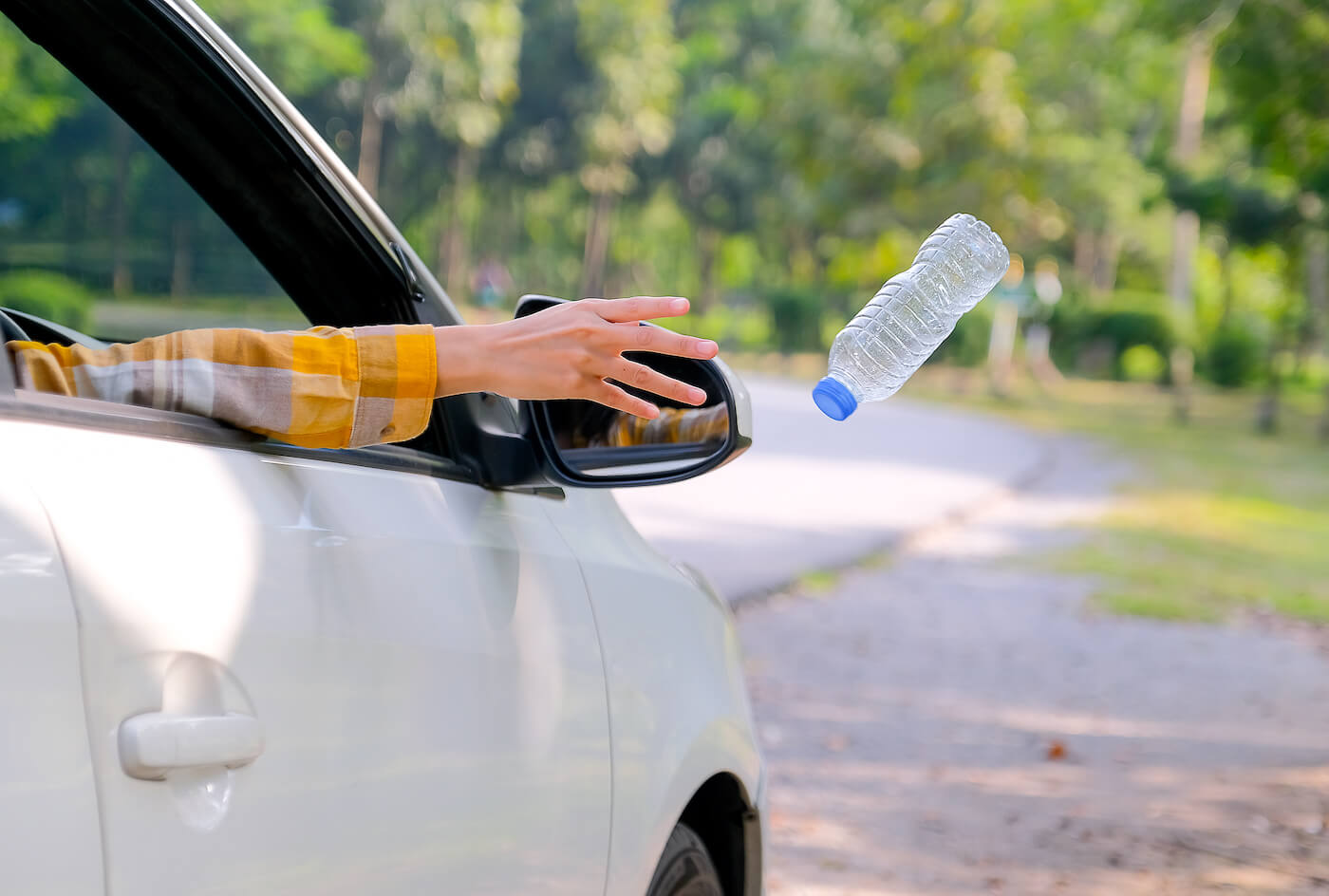
The single most common type of litter found according to the Environment Protection Authority (EPA) of NSW, is cigarette butts. In fact, cigarette butts account for half of all litter collected in New South Wales.
Aside from cigarette butt, you’d be surprised at what tossers leave on the roadside including:
- Beverage containers
- Take away containers or packaging
- Cigarette butts
- Plastic e.g. water bottles, caps, wrappers, straw
- Small paper pieces
- Take away coffee cups
- Chip and confectionery wrappers
- Glass pieces
- Glass alcohol bottles
- Old sofa
- ..and other common household rubbish
Do you know where in New South Wales littering is prevalent? It is most common in densely populated and large cities such as Sydney. Aside from the metro, common dump sites include town entrances and exits, service centres, and areas.
Litter negatively impacts local communities in a variety of ways, including flora and fauna. To address the issue, government officials and even non-governmental organisations have worked together to find a solution to this pervasive issue.
And one of the absolute solutions our local government has found to be effective is penalising the violator.
Fines for Littering & Dumping from Motor Vehicles in NSW
The NSW Government is dedicated to eradicating litter. In fact, it had achieved a 43% reduction in litter since 2013, when it began penalising violators. This statistic was made possible by the government’s Report to NSW EPA initiative and other anti-littering efforts.
Throughout the program, significant progress has been made such as:
- More than 57,000 people have signed up to report vehicle littering
- There were over 76,000 reports of vehicle littering
- More than 45,900 fines were imposed by the EPA
How Littering Law Works?
Under the Protection of the Environment Operations Act 1997, it made it easier to prosecute vehicle littering. With this, the EPA, the local councils and other government agencies have been authorised to issue littering penalty notices. Unless the owner provides a statutory declaration detailing who was in charge of the vehicle at the time of the littering.
Regardless of the type of litter deposited, the penalty for littering from a motor vehicle is as follows:
- If the vehicle is owned by a corporation or a partnership, the fine is $500
- If the vehicle is owned by an individual, the fee is $250
- For aggravated littering such as a lit cigarette butt, the fee is $900
- Unlawful waste transport $750 fine for individuals and $1500 fine for corporations.
For example, for transporting and dumping garbage onto a public sidewalk from within a property.
- The fine for transporting hazardous waste (such as asbestos) is $1500 for individuals and $5000 for businesses
- Small items such as candy packaging or wrappers is a $60 fine
- Aggravated littering, such as broken glass, will result in a fine of $375 for individuals and $750 for corporations
How to Classify Unwanted Items as Litter?
Litter is defined as follows in section 144A of the Protection of the Environment Operations Act 1997 (POEO Act):
a) any solid or liquid domestic or commercial refuse, debris, or rubbish deposited in or on a place, whether or not it has any value when or after being deposited in or on the place, including any glass, metal, cigarette butts, paper, fabric, wood, food, abandoned vehicles, abandoned vehicle parts, construction or demolition material, garden remnants and clippings, soil, sand, or rocks.
and
b) any other material, substance, or thing deposited in or on a place if its size, shape, nature, or volume makes the place where it has been deposited disorderly or has a negative impact on its proper use.
Individuals and corporations disposing of any of the above litter in public or private open space areas will be fined.
Litter in Public Place
The term “public place” in the POEO Act’s dictionary includes:
(a) a public place as defined by the Local Government Act of 1993, and
(b) a State forest or flora reserve as defined by the Forestry Act of 2012, and
(c) a national park, a state recreation area, a historic site, a nature reserve, a state game reserve, or an Aboriginal area as defined by the National Parks and Wildlife Act of 1974, and
(d) a place that is open to the public or is used by the public, whether or not for a fee or other consideration, whether or not the place is ordinarily so open or used, and whether or not the public to whom the place is so open or used is limited to a specific group of people.
Public places include railway stations, bus stops, sports venues, parks, roads, and footpaths.
Litter in Open Private Place
‘Open private place,’ according to Section 144A of the POEO Act, means:
(a) a private location in or on land that is not contained within a building on the land, or
(b) a private location near or on the water.
Gardens or yards around private residences or industrial premises, farm or grazing land, and privately-owned vacant land are examples of open private places.
Fun fact: Do you know that advertisement materials can be considered as litter?
Under Section 144A of the POEO Act, advertising material is considered litter if it contains advertising or promotional items. These includes:
- real estate agent’s leaflets
- newsletters with advertisements for retail, sporting, educational, community, or political organizations or activities
- refrigerator magnets promoting a tradesperson’s services
- packets of a free sample of a product, such as detergent
Moreover, Litter Law DOES NOT apply to any of the following:
- parking tickets left under a car’s windshield wiper
- newsprint (and inserts)
- information about the Roads and Maritime Services mobility parking scheme (left on a vehicle)
- anything that is so large, shape, or volume that it cannot or should not be deposited in a letterbox, newspaper receptacle, or under a door
- anything deposited by or with the consent of a place’s custodian
More information about advertising materials can be found on the EPA’s website.
How to Report Motor Vehicle Litterers?
Now that we’ve established the grounds for violators let’s look at how we can prevent them from getting away with their misbehaviour. In collaboration with local governments, the NSW Government launched an anti-litter program in which ordinary citizens can participate.
Report a Tosser! is an advertising campaign that raises awareness of the issues associated with roadside littering and encourages people to report littering using Report to EPA.
If you witnessed someone tossing litter from their vehicle, you can use the Report to EPA online platform. You will be asked to fill out the following fields in less than 5 minutes, such as:
- What Type of Vehicle
- Date and Time
- Location
- Observations
- Details
Let us not put up with such irresponsible behaviour. By reporting these irresponsible individuals, you’re not only protecting the environment, but also our resources, which can be put to better use.
Moreover, there are other things to consider before you submit or make the report, such as:
- If you don’t have a mobile phone or are under 18 years old, you need to register offline
- Do not use your phone while driving, make sure to pull over. Alternatively, if you have a passenger, ask him or her to obtain the information instead.
- Never use your cell phone while driving a vehicle, even if you are stopped at a traffic light or in a parking lot.
Ensure to encode all necessary information, take plenty of photos or recordings, and document all your observations.
In other words, avoid putting yourself in danger while gathering the necessary information. Consider your safety first and foremost. You may also want to check the following organisations for waste and litter pollution.
Top 10 Facts About Littering in NSW
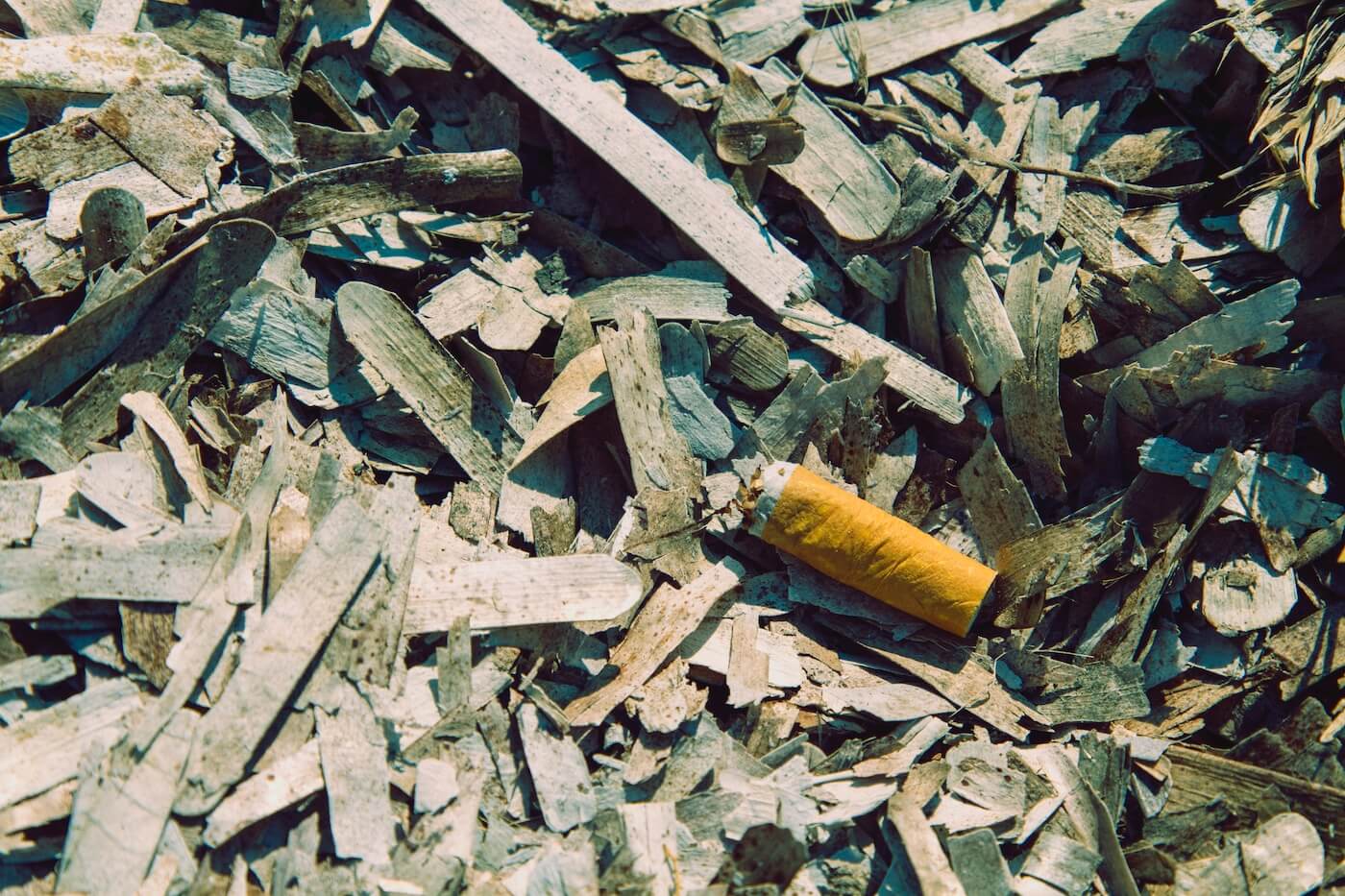
Littering has a negative impact on the environment, human life, and other living things. However, people, including large corporations and industrial facilities, dismiss the negative consequences of their irresponsible behaviour.
The deleterious consequences of human activity are already visible and felt. Continuing to do so will only exacerbate our planet’s already precarious health. We’ll show you ten of the many facts about littering.
- Littering on the streets or dumping rubbish on the roadside causes serious accidents.
- Our litter always ends up in the oceans.
- Littering kills wildlife and other living creatures.
- Littering is costly because it compels the government and other local authorities to address the issue.
- Littering becomes a social hazard due to its unpleasant appearance and odour.
- Reduces property rates when it is closed to a heavily littered place.
- Food packaging accounts for nearly all of the litter collected.
- Cigarette butts are a major contributor to litter, right up there with food packaging.
- The NSW Government intends to reduce plastic litter by 30 percent by 2025 and by 60 percent by 2030.
- The NSW Government has a Return and Earn program where you will receive a 10-cent refund when you return an eligible drink container.
Conclusion
Irresponsible disposal of rubbish is already harmful to the environment. The majority of litter is made of plastic. As we all know, plastic has a lifespan of up to 450 years. Are we really going to compromise our health and the environment any further?
In collaboration with local councils and authorities, our government is committed to addressing the littering problem. Let us do our part to assist our community. If you see someone littering in public places, take the appropriate action.
